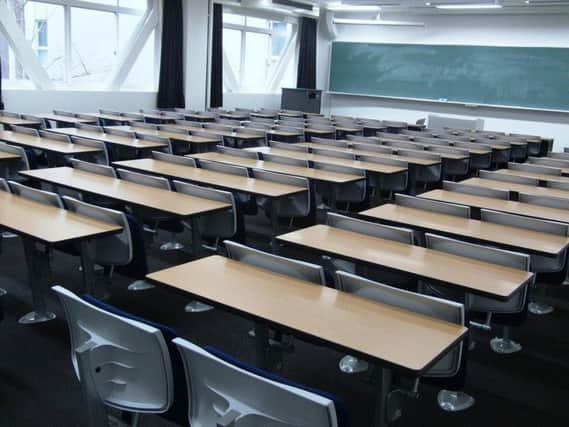Sunderland Primary Schools Key Stage 2 Performance Tables 2018: How does your child's school rank?


According to the Department for Education (DfE), 68% of pupils on Wearside are meeting the national standard - higher than the national average of 64%.
The tables show that St Joseph's Roman Catholic Voluntary Aided Primary School, in Rutland Street, Sunderland, fared best with 97% of its pupils meeting the expected standard when it comes to reading, writing and maths.
Advertisement
Hide AdAdvertisement
Hide AdHeadteacher Damian Groark said: "We are utterly delighted that the committed pupils,dedicated staff, both teaching and non teaching and hugely supportive parents have all worked together to achieve this great honour.
"We have a unique community and success like this means the world to us."
School Standards Minister Nick Gibb praised Bexhill Academy for how it has helped disadvantaged pupils learn the basics in primary school.
Advertisement
Hide AdAdvertisement
Hide AdData shows disadvantaged pupils at Bexhill, in Bexhill Road, Sunderland, achieved better than average progress following this year’s Key Stage 2 national curriculum tests.
Mr Gibb said: "We are determined that all children, regardless of their background or circumstances, should fulfil their potential, and this means ensuring that they have a good grasp of reading, writing and maths by the time they leave primary school.
"These statistics show that Bexhill Academy, part of WISE Academies, is helping to achieve this aim by successfully ensuring that its pupils from disadvantaged backgrounds make better progress in primary school than the national average.
Advertisement
Hide AdAdvertisement
Hide Ad"It is a shining example of how the freedoms afforded by academy status allow headteachers, teachers and governing bodies to make the decisions that are best for their communities, providing a high quality education for all their pupils."
Ruth Walton, headteacher of Bexhill Academy, said the the results were the outcome of four years of work to improve its children's literacy, numerous and maths, using its pupil premium funding, which is given to help disadvantaged youngsters perform better and close the gap between them and their peers.
The school holds extra group support sessions, ensures no child goes home unable to understand something they have covered that day and spends extra support to year 6 children.
She said: "The staff, pupils and parents are extremely happy with how the school has transformed over the last four years.
Advertisement
Hide AdAdvertisement
Hide Ad"The data speaks for itself and we are really pleased the hard work from the pupils and staff has paid off."
Simon Marshall, Director of Education at Together for Children, which operates Sunderland’s children’s services said: "The latest league tables show that primary schools in our area continue to perform above national average.
"Our primary schools work hard to give children the best start in life and achieving good levels of reading, writing and maths ensures our pupils are able to develop the skills, knowledge and understanding to make them effective and successful learners of the future.
"Our school improvement service is committed to supporting schools to ensure all pupils in Sunderland primary schools are able to reach their full potential."
However, not everyone was in favour of the new tables.
Advertisement
Hide AdAdvertisement
Hide AdKevin Courtney, Joint General Secretary of the National Education Union, said: "The test scores reported by the Department for Education tell us little about the overall quality of children’s education, yet they continue to dominate many aspects of school life.
"They come at a cost. In the pursuit of high SATs scores, teachers’ workload is intensified and children’s well-being is damaged.
"Teaching to the test, as even Ofsted now recognises, works against the development of a broad curriculum and rich opportunities for learning. The primary assessment system based on SATs has run its course: we need a replacement."